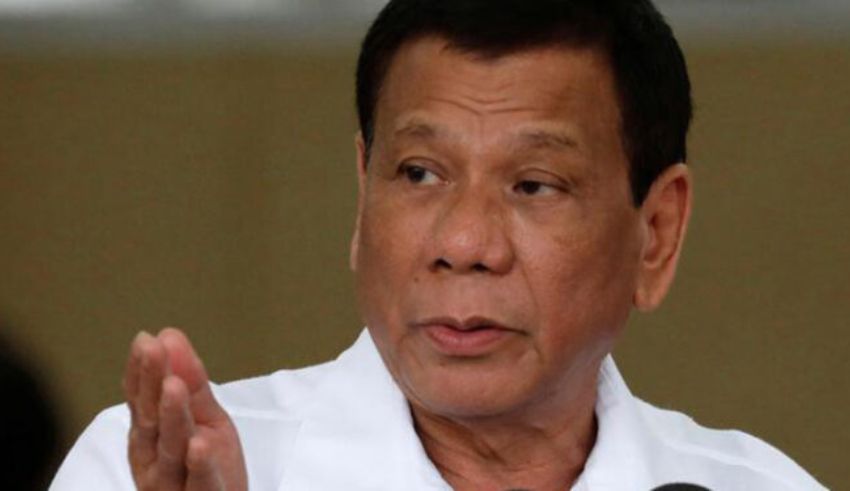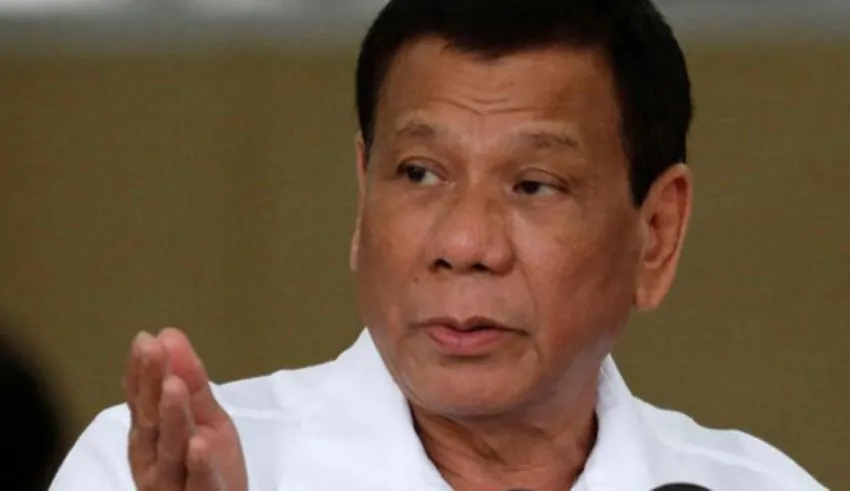

(C) Rodrigo Duterte
Former Philippine President Rodrigo Duterte has angrily rejected the existence of a reward system during his administration’s infamous and divisive war on drugs, a campaign that left thousands of people dead and rang warning bells on violations of human rights both domestically and abroad. Duterte answered allegations in an interview on Sonshine Media Network International that police personnel were paid money for killing drug suspects, a claim that fuels continuous criticism of his government’s law enforcement and anti-narcotics policies.
Reacting directly to the accusations, Duterte insisted unequivocally that under his direction no such award system ever existed. He clarified that far apart from the alleged financial incentives proposed, the only acknowledgement he gave to police personnel who effectively carried out their duties was in the form of basic, human gestures. “There was no incentive. Declaring, “I will never give a reward,” Duterte underlined that his approach of appreciating the work of the police included informal meetings, dinners, and congratulations notes instead of financial incentives.
Duterte added some background on how he usually handled police personnel following a successful operation. Far from rewarding them with money bonuses, the former president detailed how he would personally honor officials for their performance over a dinner. “If their mission is accomplished, I treat the police to the restaurant and congratulate them,” he stated.
Duterte said that the relationship between the government and law enforcement was based mostly on this friendship. Apart from dining together, Duterte also mentioned that many police personnel like drinking after demanding and taxing operations. Knowing cops, they drink a lot. You just offer them two bottles of scotch, and they will never accept any money, he said, pointing out that although the cops would value deeds of kindness like cocktails, they were not inclined to accept financial benefits for their acts.
This denial of a reward system responds to earlier testimony given by retired police colonel Royina Garma, who told the House of Representatives’ Quad Committee that cash rewards were allegedly given to cops engaged in killings under the Duterte government’s war on drugs. Depending on the status of the drug suspect targeted, Garma claims the rewards ranged from ₱20,000 to as much as ₱1 million each successful kill. With many wondering whether financial incentives helped to explain the wave of extrajudicial executions and human rights abuses marked by Duterte’s administration, this testimony revived the already contentious discussion on the direction of the drug war.
A major focus of Duterte’s six-year reign, the war on drugs claimed thousands of lives; official police records show that police actions accounted for around 6,000 deaths. Independent observers and human rights groups contend, however, that the actual death toll is probably far higher—up to 30,000 people may have been killed overall—including those victims of extrajudicial killings and vigilante punishment. Critics have long accused Duterte of fostering a culture of impunity, in which law enforcement personnel felt empowered to carry out killings without fear of consequences, in part due to the belief they would be handsomely rewarded for doing so.
Notwithstanding these charges, Duterte insisted he never gave police all-clear instructions to kill suspects randomly. The former president clarified in his interview that his instructions to law enforcement was always to give arresting suspects top priority; only resorting to deadly force if the circumstances demanded it. Duterte remarked, “I really didn’t mean to kill,” adding that he told troops and police to give suspects an opportunity to fight back or surrender. “One issue resolved for the day was telling the troops to have the opportunity to fight so that, should they fight, you would be justified in murdering them. That is correct, he remarked, trying to frame the murders as required acts of self-defense instead of planned executions.
Adding still another layer of mystery to the conversation, Duterte also verified earlier Garma reports that he had purposely selected police personnel belonging to the powerful religious group Iglesia Ni Cristo (INC) to take part in his drug war. This disclosure begged issues regarding the part religious connections play in the law enforcement policies of his government. Duterte clarified that his faith in INC members stemmed from their supposed dependability and integrity, especially in relation to delicate issues like economics.
Emphasizing that the members of the religious group have shown themselves to be consistent, particularly in terms of financial management or project supervision, Duterte said, “I trust the Iglesia Ni Cristo whenever I request for something.” “Your money with them will never be wasted because they will be used for the projects I ordered them to do,” he remarked, implying that INC-affiliated officials were less prone to be corrupt or divert funds for personal benefit.
The presence of Iglesia Ni Cristo members in Duterte’s drug campaign fueled speculation about the deeper connections between his administration and the religious group, which has substantial power in the Philippines. INC spokesman Brother Edwil Zabala, on the other hand, said merely that the former president would be most suited to defend his choices, therefore stopping short of totally supporting Duterte’s explanation. Declining to discuss the group’s involvement in the anti-drug activities, Zabala stated, “It’s only him who can explain further why he made that choice.”
Still among the most divisive features of Duterte’s leadership is his drug campaign. Critics—including international human rights organizations—claim that the campaign was tarnished by extensive abuses, extrajudicial killings, and a clear contempt for due process, while advocates contend that the program was necessary to lower crime and eradicate the plague of illegal drugs. Given certain claims that Duterte’s conduct during the drug war qualifies as crimes against humanity, the International Criminal Court (ICC) has even thought about investigating his government.
The impact of Duterte’s drug campaign remains hotly contested as more specifics and testimony concerning the explosive charges about money rewards for police surfaces. Although the former president has always justified his government’s policies as required for the security of the nation, the sheer death toll and mounting body of evidence suggesting systematic mistreatment have many wondering whether justice was really done. Duterte’s most recent comments, rejecting the existence of a reward system, complicate the argument even more, but it is yet unknown if they would be sufficient to alter popular opinion.
It is abundantly evident that the debate over Duterte’s war on drugs is far from finished as the Philippines struggles with its aftermath. Whether law enforcement personnel were financially motivated to execute killings will probably continue to be a hot topic of debate regarding the behavior of the Duterte government and the wider consequences for justice and human rights in the Philippines.
If you happen to breathe K-drama, then your 'May 2025' will most likely be well-rendered into a month! Romantic sagas,…
Since yesterday, May 2, 2023, at the Mall of Asia Arena in Pasay, Ahtisa Manalo has demonstrated her brilliance by…
“you’re nothing but a trying hard copycat” Character- Lavinia Arguelles Film- Bituing Walang Ningning (1985) Context- Lavinia confronts her rival…
During the first months of 2025 WWE released several prominent wrestlers who were part of their talent roster. Professional wrestling…
Seventeen year old sprint prodigy Rin Kubo continues to make athletic history in Japan. At the Shizuoka International Athletics Meet,…
NextRise 2025-the biggest startup and tech event in Asia-is ready to take place in Seoul on June 26-27 at COEX,…
This website uses cookies.
Read More